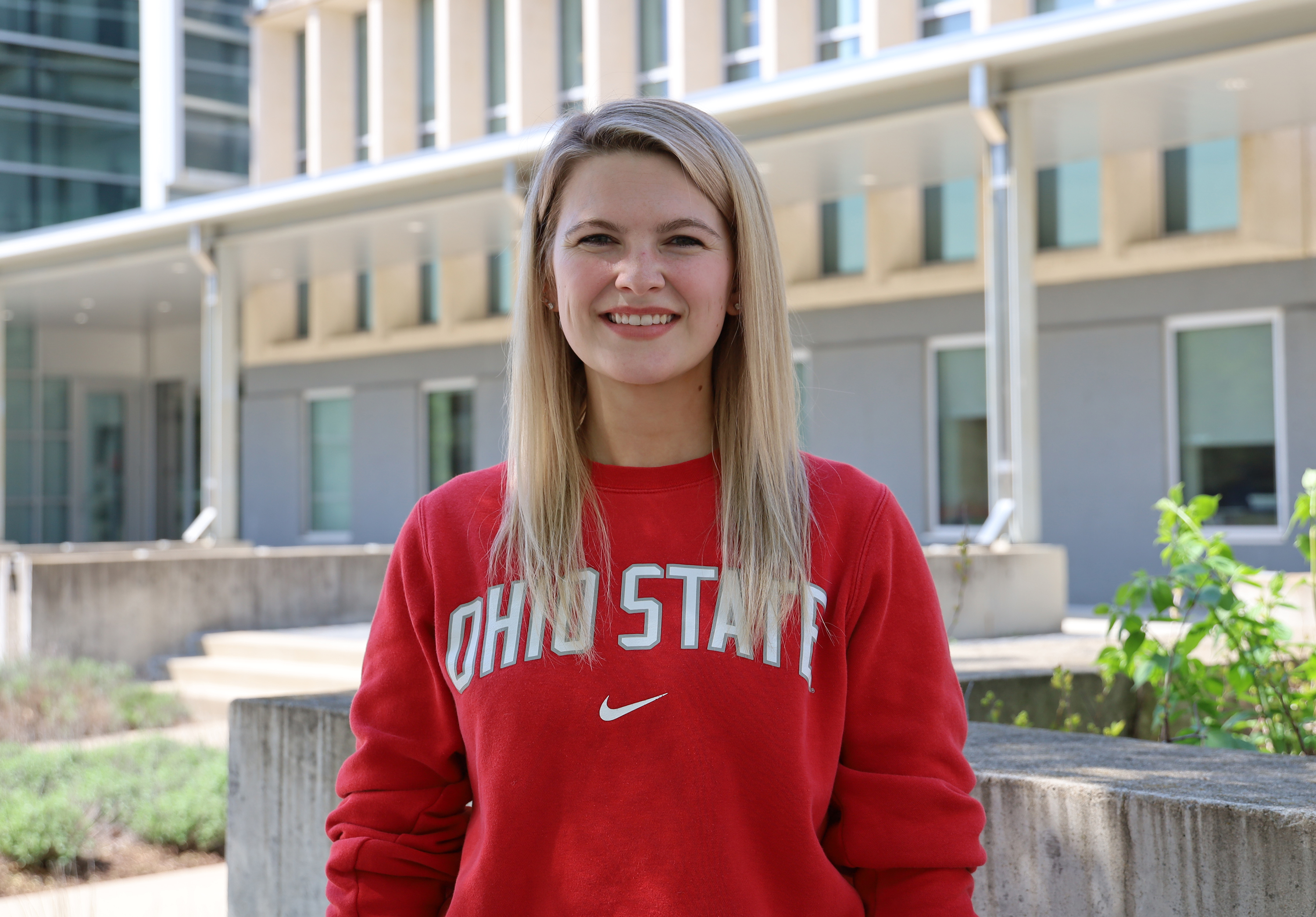Public Health Buckeyes: Sydney Randall
Music therapist inspired to address health care disparities
By Kristen Mitchell

Meet Sydney Randall, a second-year MPH health behavior and health promotion student whose work as a music therapist sparked her passion for public health.
Question and Answer
Can you tell us about your work as a music therapist?
I currently work as a music therapist at a psychiatric hospital. I work with people of all ages with varying mental health diagnoses and/or chemical dependency issues. I utilize music in addition to therapy to assist patients in establishing healthy leisure and coping skills, improving reality orientation, developing a sober lifestyle routine and more. This music is used in several session activities including lyric analysis, instrument exploration, progressive muscle relaxation, etc. The main therapeutic themes I focus on include grief exploration, anger management, grounding, mindfulness, relaxation, emotional expression and communication.
What inspired you to pursue a public health education?
I work with patients who come from various backgrounds and I see first-hand the health disparities they face. I learned very quickly that accessible mental health care and other corresponding resources impacts relapse and hospital readmittance rates. Reducing health care disparities, particularly in relation to mental health, has been a huge driving factor in my decision to pursue public health.
What public health topics are you most passionate about?
I am very interested in evaluating and hopefully proposing new policies to address some of the health disparities my patients encounter. I also am passionate about programming specifically regarding smoking cessation and harm reduction. Most of my passions are inspired by the clientele I work with.
What have you enjoyed most about the MPH program?
My peers and professors have been very supportive throughout this learning process. Coming into this program I was a little nervous and intimated, but those fears quickly dissipated due to the kindness of the people I have interacted with. I feel as though I have grown a lot both as a person and a professional. I have learned so much and am so grateful for the experience I have had at Ohio State.
What are your goals for the future?
I plan on shifting into an administrative role at the hospital I currently work at when I graduate. I would like to focus on patient care quality, and I believe my public health perspective would be valuable when informing patient care. Another one of my goals is to be involved in the policymaking process especially involving mental health care. I could also see myself continuing to develop programs involving harm reduction and smoking cessation. There are so many possibilities which is exciting to me.
What advice do you have for future public health students?
Simply believe in yourself. I came into this program with a very different background in comparison to most of my peers which caused a sense of imposter syndrome at times. I found that it was beneficial for me to identify my strengths that were unique to my experiences and undergraduate education. It is important to know your worth and what you can bring to the table. Everyone's background is important and can greatly contribute to the world of public health.
About The Ohio State University College of Public Health
The Ohio State University College of Public Health is a leader in educating students, creating new knowledge through research, and improving the livelihoods and well-being of people in Ohio and beyond. The College's divisions include biostatistics, environmental health sciences, epidemiology, health behavior and health promotion, and health services management and policy. It is ranked 22nd among all colleges and programs of public health in the nation, and first in Ohio, by U.S. News and World Report. Its specialty programs are also considered among the best in the country. The MHA program is ranked 5th and the health policy and management specialty is ranked 21st.